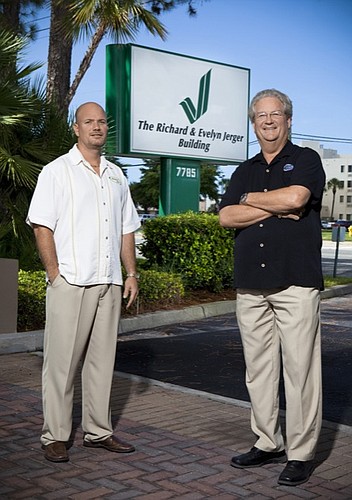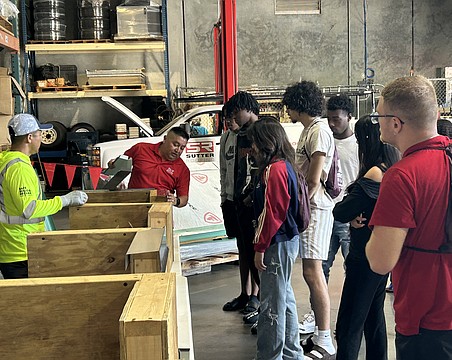The mere mention of insurance for mobile homes sounds like a setup for an unfortunate joke, since those domiciles seem to be the first and worst affected by severe weather.
Yet it became the basis for expansion of a Gulf Coast-based family business that has continued through four generations.
Tom Jerger and his son John now lead that operation, Modern USA Insurance Co. and American Traditions Insurance Co., from offices along 66th Street in Pinellas Park. Both companies are committed to maintaining the best capacity for mobile homeowners coverage.
With close to 40,000 policies, the Jergers don't have to concern themselves too much with competition because, frankly, they are in a business nobody else seems to want to get into. Since Hurricane Andrew devastated Florida in 1992 and several other named storms hit in 2004 and 2005, many insurers have sought to reduce exposure to all forms of homes statewide. Non-domestic insurers have avoided the state altogether.
“Florida is not an advantageous place to attract business,” says Tom Jerger, one of three sons of Richard Jerger, who pioneered mobile home insurance a half-century ago. “The only way to attract insurers is to show them an example of a profitable insurance company.”
Richard Jerger's father established the family's insurance agency in 1946. Richard Jerger began writing mobile home policies in 1962, when such coverage did not exist, recognizing a shift from traditional homes caused by moderate weather in the South. He arranged underwriting through a managing general agency, Central National Insurance Co. of Omaha, Neb.
The next two generations of Jergers have since diversified the business model, with Mobile USA originating in 1988 and American Traditions being launched just five years ago. In 2000 the family also established its own managing general agency, West Point Underwriters. That unit is a back-office operation for other agencies.
The niche the Jergers are in leaves them in some rare space.
That's because they have been trying to convince other companies to do business in Florida to re-establish the market and provide more options for residents — rather than trying to maintain any sort of monopoly on the mobile homeowners' market. They emphasize that coverage from bigger companies isn't always better, as evidenced by the steep rate hikes currently being sought by major carriers such as State Farm and Allstate.
“You can't be successful in insurance on rate alone,” Tom Jerger says. “Flexibility and a good understanding of what's going on are the keys to longevity in this business.”
Advance planning was also key to surviving Andrew, for which the Jergers were able to cover all claims along with paying out another $41 million for unnamed storms in 1993. “We wrote 10,000 mobile home policies after Andrew when no one else was doing it,” Tom Jerger says, adding that other larger agencies began writing policies for mobile homes based on their success.
But the biggest challenge to staying in business, instead of hurricanes or tropical storms, has been finding additional investors, Tom Jerger says. He sold the family's previous insurance business in the late 1990s to generate more capital. Then, in 2007, he took advantage of a state program that allowed private investors to help start new businesses.
“You can't perpetuate a family-owned company because there are going to be members who want to get out,” he says. Tom and John Jerger remain managers of Modern USA and American Traditions, but they each own less than 50% of those companies.
Each of the Jergers' companies purchase $130 million in reinsurance each year, and both have received “A” ratings for financial stability by Demotech Inc., a Columbus, Ohio-based analysis firm.
“It's easier to do with outside investors than on our own,” says John Jerger, who also launched an information technology company in 2000 that generated revenue of $12 million in just two years. “We still believe in having a strong family presence.”
While many of the companies' 115 employees left after the original family business was sold off, they returned after the Jergers regained control when the buyer decided to leave the state. Some of them have been around nearly three decades, but Tom Jerger emphasizes there is room for newer hires to advance.
“We treat our employees as family,” he says. “I want to be able to offer the same opportunities to younger folks as I had.”






